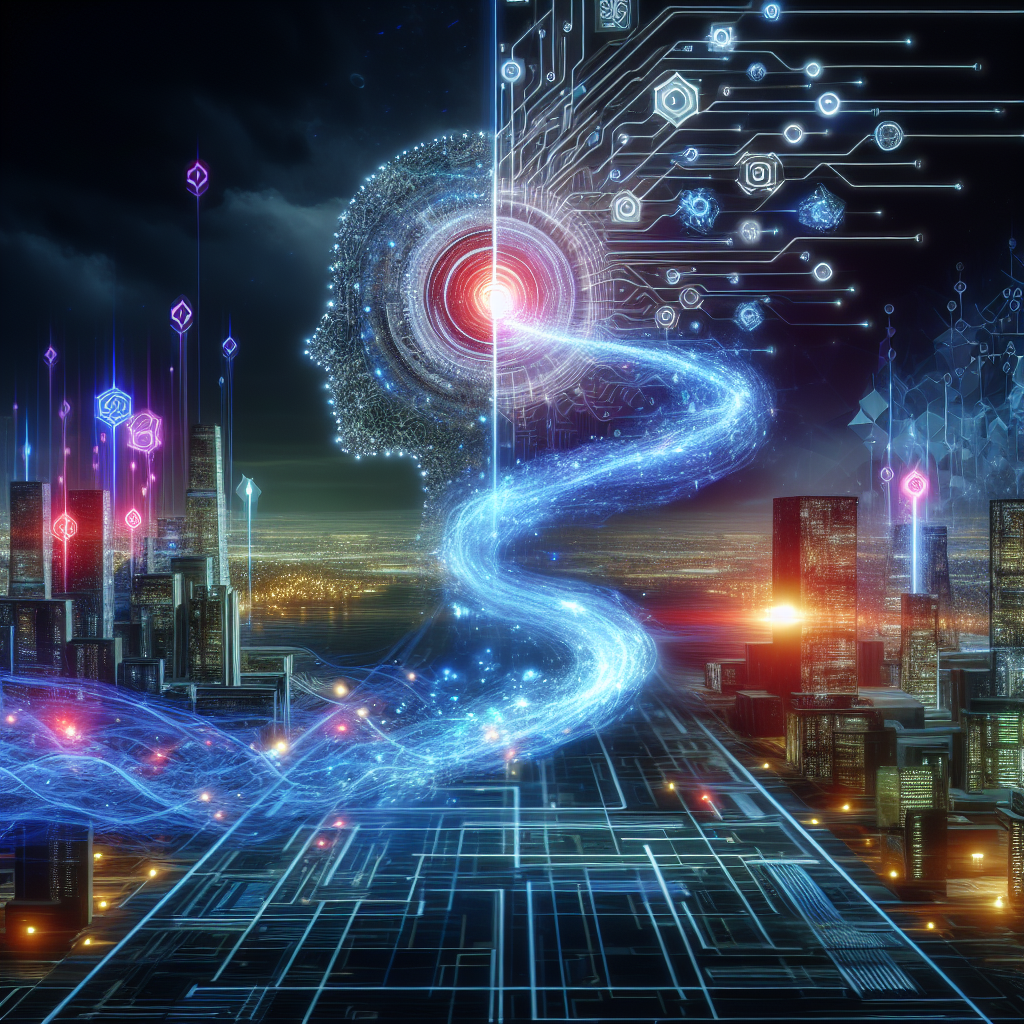From Sci-Fi to Reality: How AGI is Transforming Our World
Artificial General Intelligence (AGI) has long been a topic of fascination in science fiction, with depictions ranging from helpful robot companions to malevolent superintelligent beings. However, in recent years, AGI has started to make its way from the realm of fantasy into reality, with significant implications for how we live, work, and interact with technology. In this article, we will explore the current state of AGI technology, how it is being used in various industries, and the potential impact it could have on our world.
What is AGI?
AGI refers to a type of artificial intelligence that is capable of performing any intellectual task that a human can do. This includes tasks such as reasoning, problem-solving, learning, and understanding natural language. Unlike narrow AI, which is designed for specific tasks, AGI is designed to be more general and adaptable, with the ability to apply its intelligence to a wide range of tasks.
The concept of AGI has been around for decades, with researchers and scientists working to develop systems that can mimic the complexity and flexibility of human intelligence. While progress has been made in various areas of AI, achieving true AGI remains a significant challenge due to the complexity and nuance of human intelligence.
Current State of AGI
While AGI remains a theoretical concept in many ways, there have been significant advancements in AI technology that bring us closer to achieving this goal. One of the key developments in recent years has been the rise of deep learning, a type of machine learning that uses neural networks to simulate the way the human brain processes information. Deep learning has enabled AI systems to perform tasks such as image recognition, natural language processing, and speech recognition with a level of accuracy that was previously thought to be impossible.
Another important development in the field of AGI is the use of reinforcement learning, a type of machine learning that enables AI systems to learn from their environment through trial and error. This approach has been used to develop AI systems that can play complex games such as Go and chess at a superhuman level, demonstrating the potential for AI to learn and adapt to new tasks.
Applications of AGI
The potential applications of AGI are vast and varied, with implications for nearly every industry and aspect of society. In healthcare, AGI could be used to analyze medical images, diagnose diseases, and develop personalized treatment plans for patients. In finance, AGI could be used to analyze market trends, predict stock prices, and optimize investment strategies. In transportation, AGI could be used to develop autonomous vehicles that can navigate complex environments and make split-second decisions to avoid accidents.
AGI also has the potential to revolutionize the way we interact with technology, with the development of virtual assistants that can understand natural language, engage in conversation, and perform tasks on behalf of their users. These virtual assistants could be used in a wide range of applications, from customer service to personal productivity, making it easier for people to access information and services in a more intuitive and efficient way.
Impact of AGI on Our World
The widespread adoption of AGI technology has the potential to transform our world in profound ways, both positive and negative. On the positive side, AGI has the potential to revolutionize industries, increase productivity, and improve the quality of life for people around the world. By automating repetitive tasks, AGI can free up human workers to focus on more creative and strategic tasks, leading to higher levels of innovation and job satisfaction.
However, the rise of AGI also raises concerns about the impact on the job market, with the potential for widespread job displacement as AI systems become more capable of performing tasks that were previously done by humans. This could lead to increased inequality and social unrest if not managed properly. There are also concerns about the ethical implications of AGI, including issues related to privacy, security, and bias in AI systems.
FAQs
Q: How close are we to achieving AGI?
A: While significant progress has been made in AI technology in recent years, achieving true AGI remains a significant challenge. Researchers and scientists are still working to develop systems that can mimic the complexity and adaptability of human intelligence.
Q: What are the potential benefits of AGI?
A: The potential benefits of AGI are vast and varied, with implications for nearly every industry and aspect of society. AGI has the potential to revolutionize industries, increase productivity, and improve the quality of life for people around the world.
Q: What are the potential risks of AGI?
A: The rise of AGI also raises concerns about the impact on the job market, with the potential for widespread job displacement as AI systems become more capable of performing tasks that were previously done by humans. There are also concerns about the ethical implications of AGI, including issues related to privacy, security, and bias in AI systems.
In conclusion, AGI represents a significant milestone in the field of artificial intelligence, with the potential to revolutionize industries, improve the quality of life for people around the world, and raise important ethical and societal questions. As researchers and scientists continue to make progress in this area, it will be important for policymakers, industry leaders, and the public to engage in conversations about the implications of AGI and how best to harness its potential for the benefit of society.

